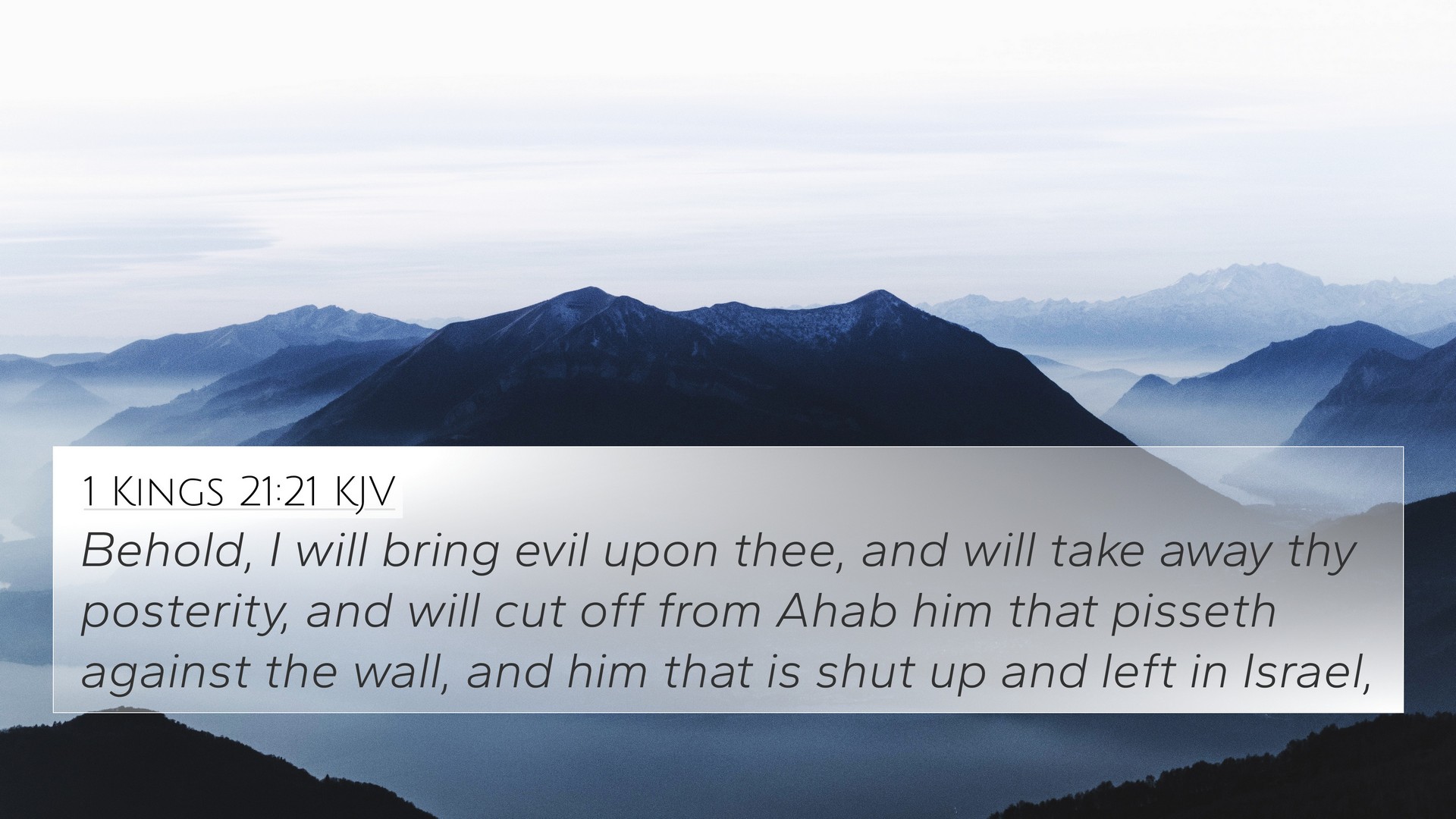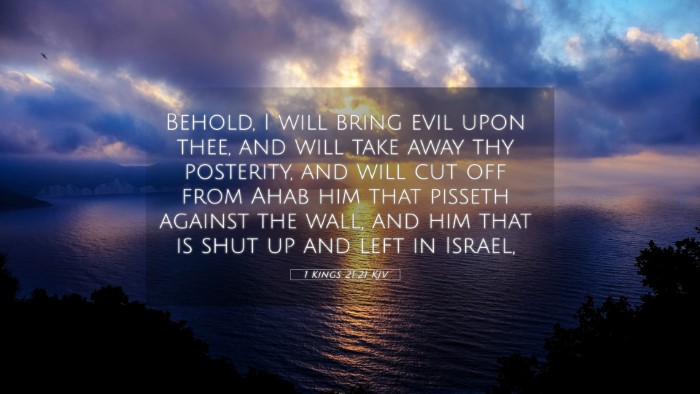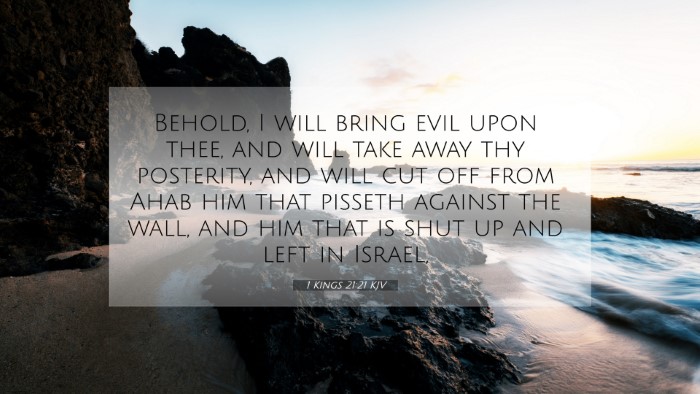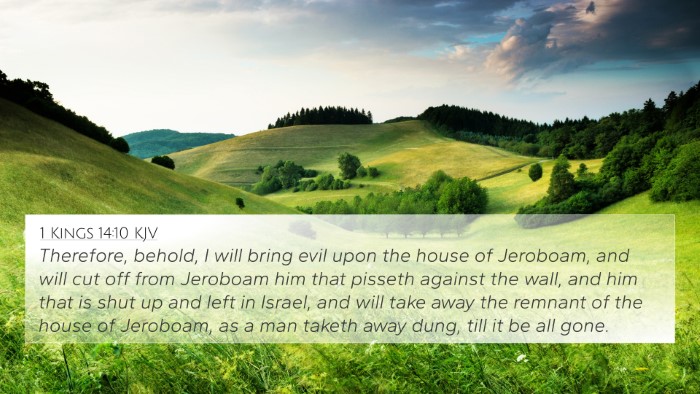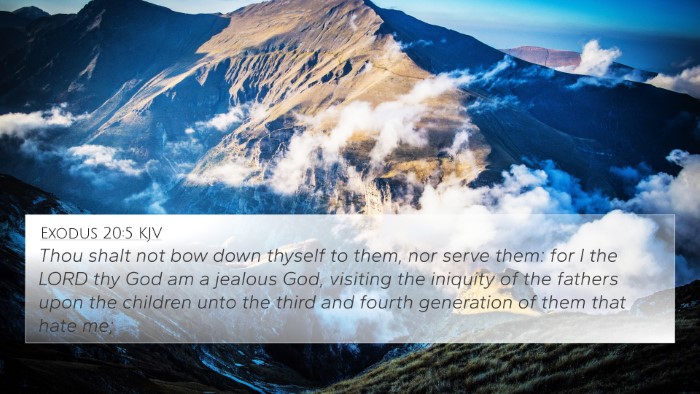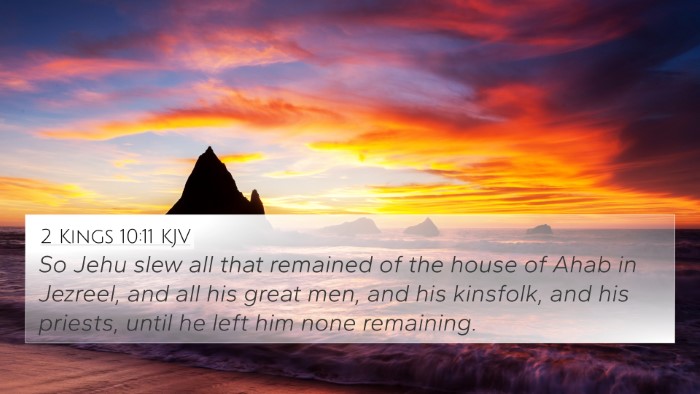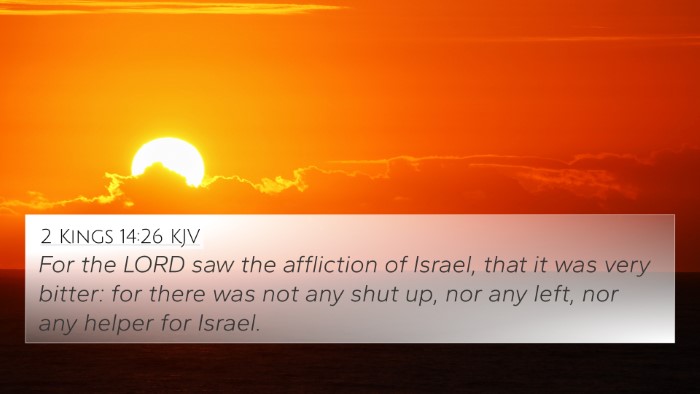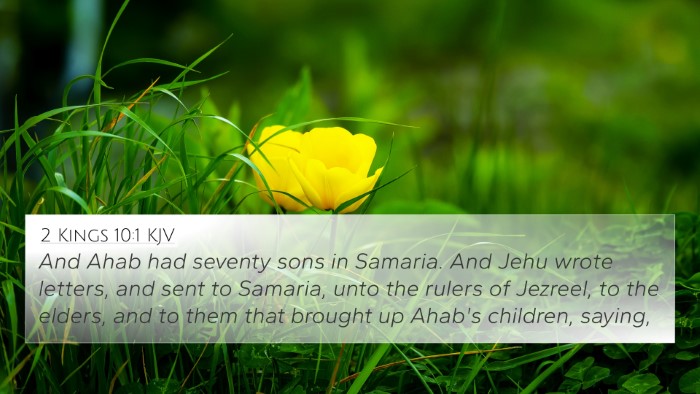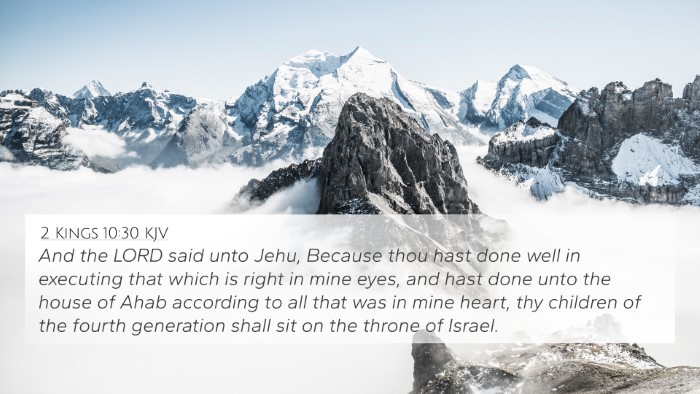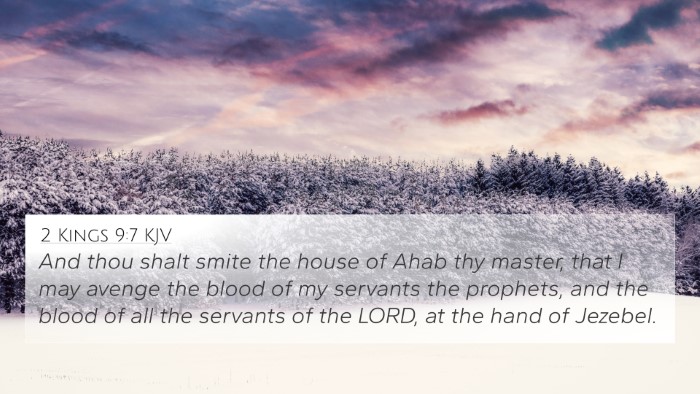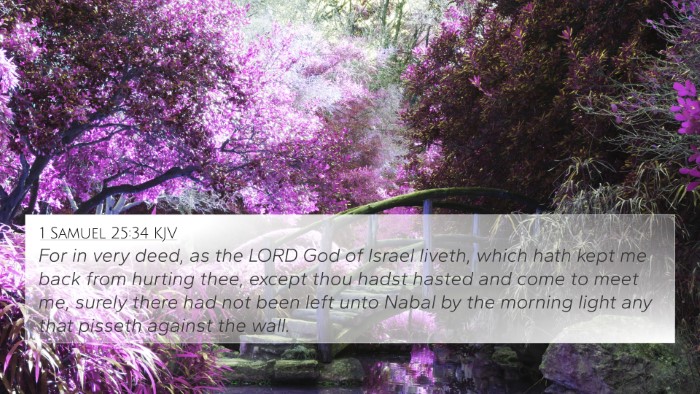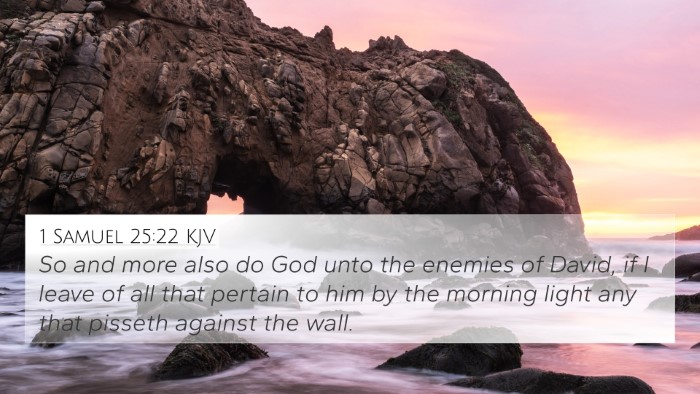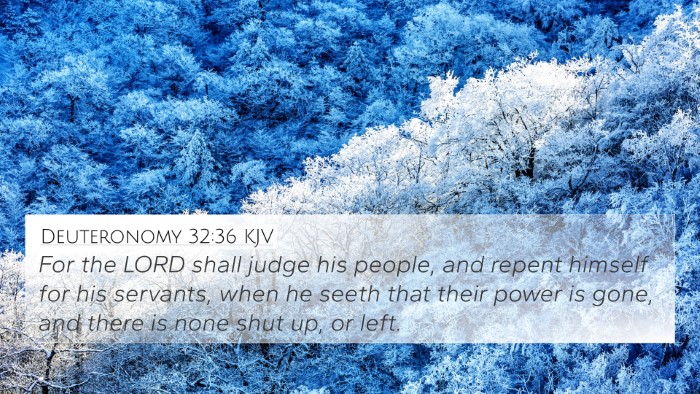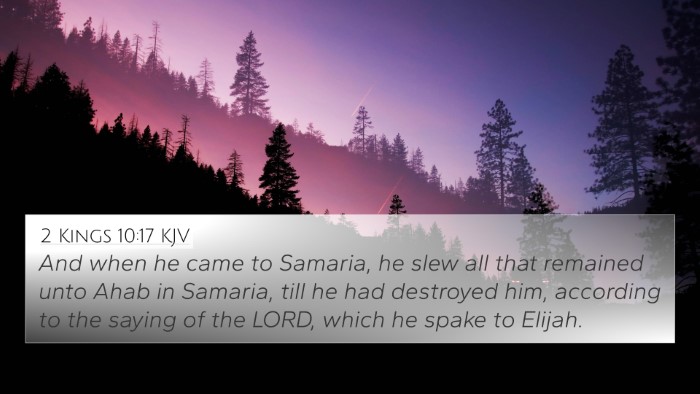Understanding 1 Kings 21:21
1 Kings 21:21 is a significant verse within the narrative of King Ahab and Naboth's vineyard, highlighting the severe ramifications of Ahab's actions against Naboth. The verse states:
"Behold, I will bring evil upon thee, and will take away thy posterity, and will cut off from Ahab him that pisseth against the wall, and him that is shut up and left in Israel."
This declaration from the Lord signifies a divine judgment against Ahab for his wrongdoing.
Context and Background
The backdrop of this verse is Ahab's desire to acquire Naboth’s vineyard, which leads to Naboth's wrongful execution. By examining the commentary insights from respected authors like Matthew Henry, Albert Barnes, and Adam Clarke, we can uncover deeper meanings and interpretations of this striking text.
Commentary Insights
-
Matthew Henry's Commentary:
Henry emphasizes God's justice in punishing Ahab, illustrating the severity of Ahab's sins. He notes that God's wrath would not just affect Ahab, but would also extend to his descendants, representing a complete erasure of his lineage. This serves as a warning against the consequences of covetousness and evil deeds.
-
Albert Barnes' Notes:
Barnes provides insight into the phrase "cut off from Ahab him that pisseth against the wall," explaining it as a figurative expression for eradicating every male descendant of Ahab. This reflects the ultimate rejection by God of Ahab's reign and legacy due to his wickedness and unrepentant heart.
-
Adam Clarke's Commentary:
Clarke emphasizes the grace and patience of God, noting that divine judgment is a last resort for someone who continually persists in sin. The mention of God's intention to bring “evil” upon Ahab indicates the seriousness with which God regards injustice and moral corruption among His people.
Thematic Connections
This verse ties deeply into themes of divine justice, the repercussions of sin, and the integrity of God's covenant. It invites readers to reflect on the broader biblical narrative of judgment, mercy, and the expectation of righteousness. Several relevant Bible verse cross-references help to illuminate its meaning:
- Exodus 20:5-6 - Discusses God’s jealousy and the punishment of the iniquity of the fathers upon the children.
- 2 Kings 9:8 - Foretells the complete destruction of Ahab's house.
- Proverbs 13:22 - States that the wealth of the sinner is laid up for the just, connecting themes of justice and God’s retribution.
- Jeremiah 22:30 - Declares that none from Jehoiakim's lineage will succeed on the throne, paralleling the fate of Ahab.
- Matthew 23:35 - Highlights God's judgment on the blood of the righteous, connecting the narratives of the unjust killing of the innocent.
- Revelation 21:8 - Lists those who will be judged and meet God’s wrath, illustrating God’s stern view on sin.
- Psalm 37:28 - Affirms that the Lord loves justice and will not forsake His saints, presenting a hope in divine justice.
Practical Applications
The narrative and divine judgment of 1 Kings 21:21 serves as a sobering reminder of the consequences of sin in one's life and legacy. It is imperative for readers to consider their own actions and the potential repercussions on themselves and their progeny. The cross-referencing of this verse with related scriptures provides a comprehensive understanding of God's nature and justice throughout the Bible.
Conclusion
In summary, 1 Kings 21:21 reveals profound truths about divine justice. Through understanding the contextual elements and commentary insights, one can appreciate the weight of this verse. By linking it to other scripture, readers can better comprehend the consequences of sin and the hope offered through repentance.
Tools for Cross-Referencing
For those looking to explore deeper connections and thematic Bible verse connections, utilizing tools such as a Bible concordance or a Bible cross-reference guide can immensely aid in understanding the intricate web of relationships within the scriptures.
